France
Paris
Switch to your local agency
Retour au menu
Coffee, one of the world’s favorite beverages and a daily staple for many, is constantly reinventing itself! The coffee market is dynamic, but currently facing a significant challenge: Robusta prices have increased by 200% in the last two years. This is due to climate change, including a lack of rain and significant temperature variations.
This situation invites us to look at new market trends, influenced by consumers who are budget-conscious, environmentally aware, and seeking new experiences.
With the rising cost of coffee, at-home coffee consumption continues to grow. The global at-home coffee market, which includes whole bean coffee, ground coffee, pods, and instant coffee, is expected to reach $108.4 billion by 2029 (Stylus).
Making coffee at home is significantly cheaper than purchasing it to go or enjoying it at a café. In Canada, 94% of coffee drinkers think that brewing coffee at home is an effective way to save money (Mintel, The Future of Coffee: 2024).
Similarly, in the United States, 83% of consumers believe that good coffee can be affordable.
Beyond cost, time is a factor influencing at-home coffee consumption. Preparing coffee, whether using capsules or ground beans, remains a quick and easy process. However, this convenience isn’t the only driver. While speed is a key consideration for many, the desire to replicate the coffee shop experience at home and play barista holds significant weight. The ability to customize drinks to suit dietary needs and preferences is both appealing and reassuring.
This ‘Barista Experience’ trend is driving coffee brands to develop innovative product lines. Nescafé is a good example with its Expresso Concentrate range. A liquid coffee concentrate that allows consumers to prepare iced coffees and replicate the barista experience at home.
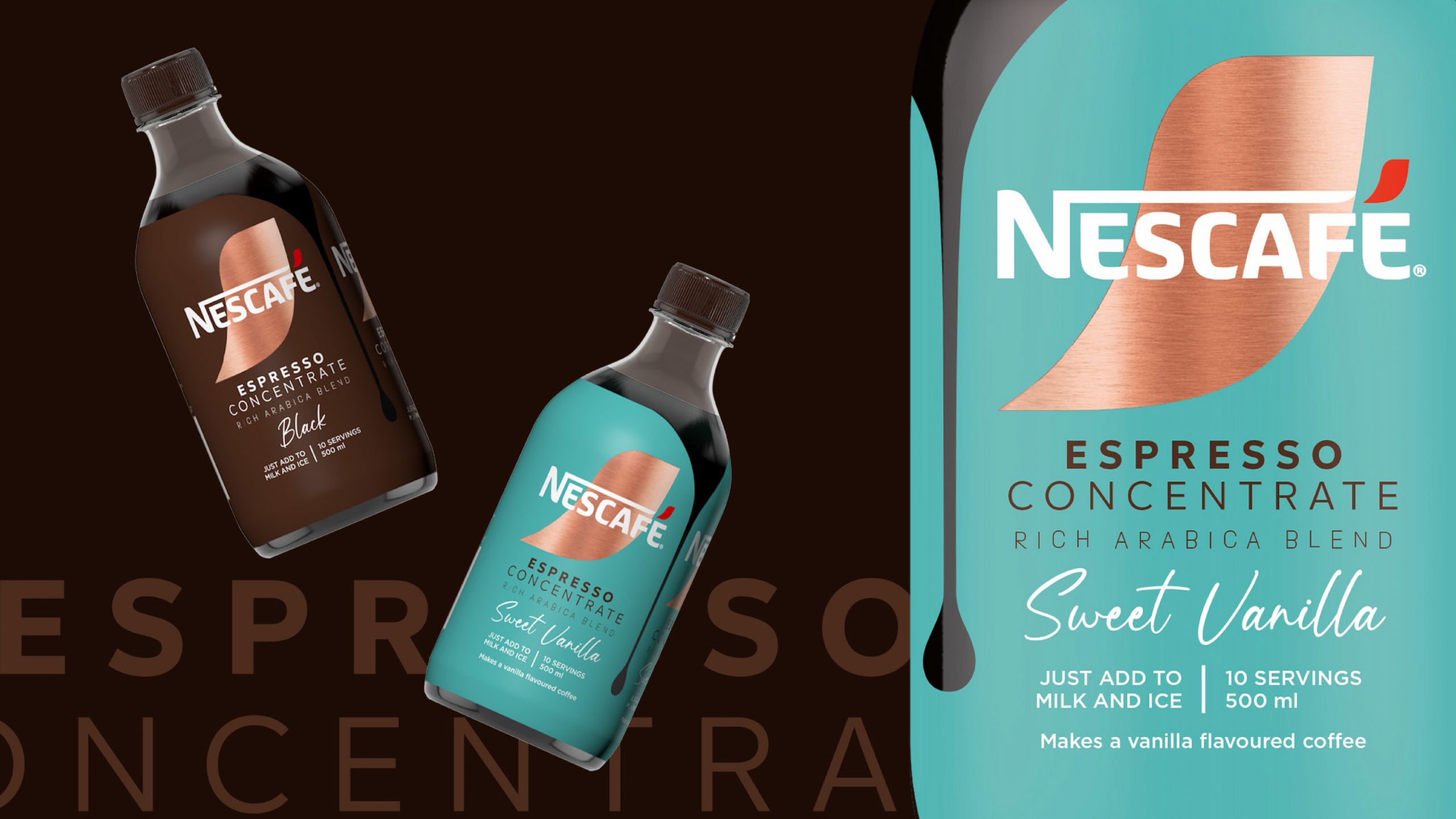
A great example of a brand that specializes in the ‘Barista Experience’ is Califia Farms, a California-based company known for its plant-based milks, creamers, and ready-to-drink coffees and teas.Their innovative approach, highlighted by the “Barista Blend” for crafting café-quality drinks at home and the ready-to-drink “Cold Brew Coffee,” creates a unique barista experience. The brand aims to appeal to a broad audience, from dedicated coffee enthusiasts to those simply seeking original and delicious plant-based beverages, with options like Peppermint Mocha milk and Sugar Cookie Almond Creamer.
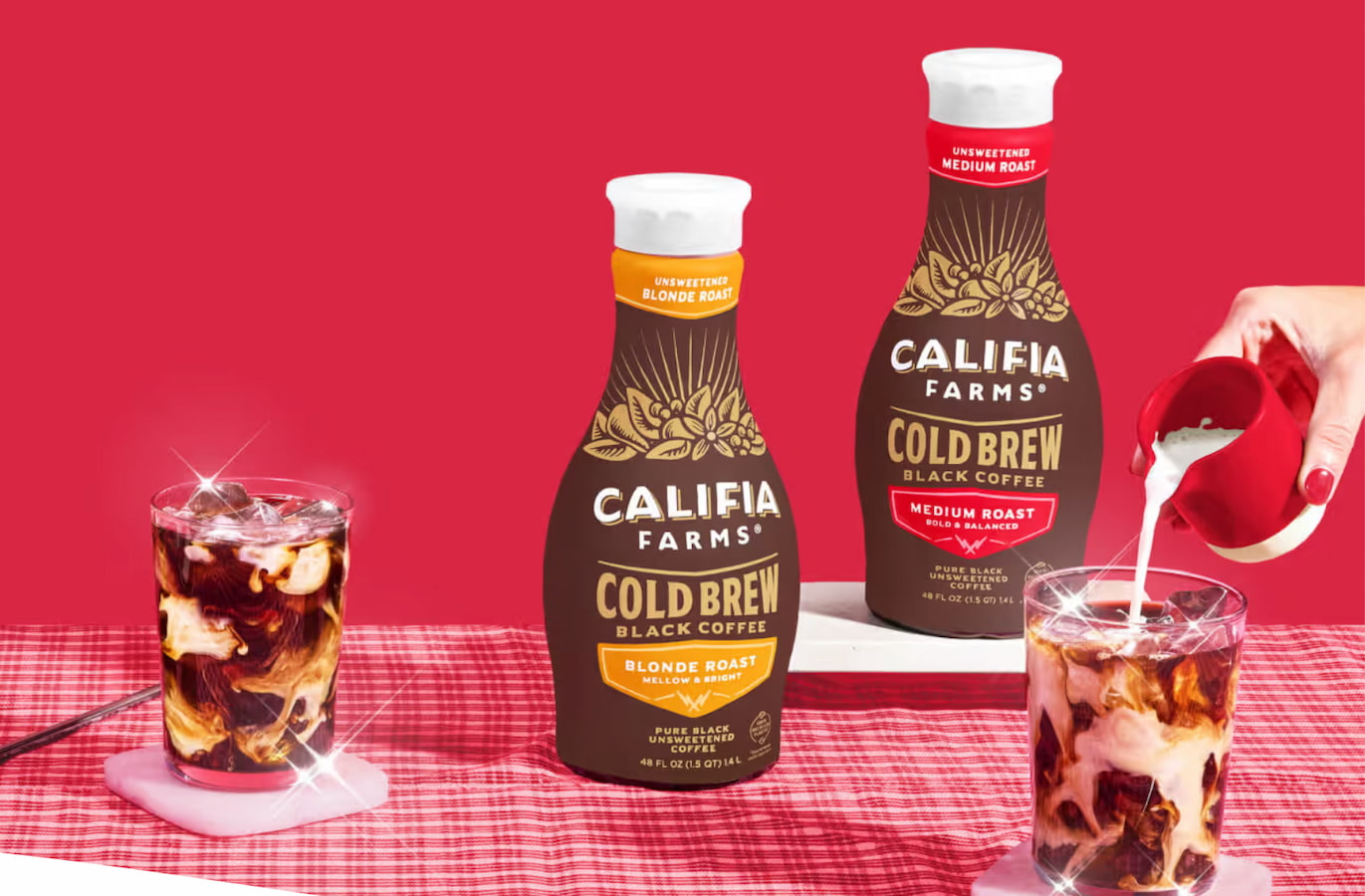
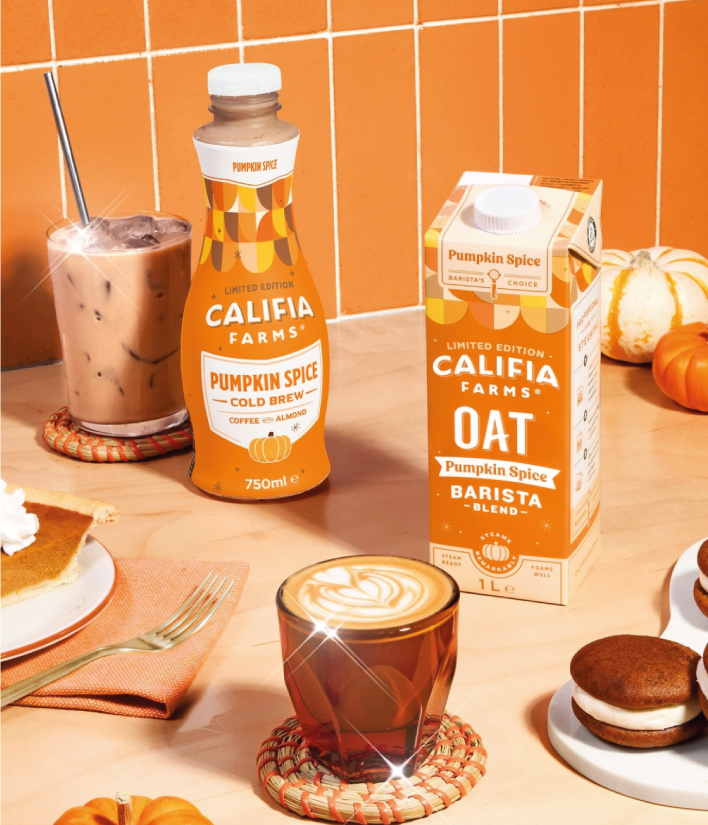
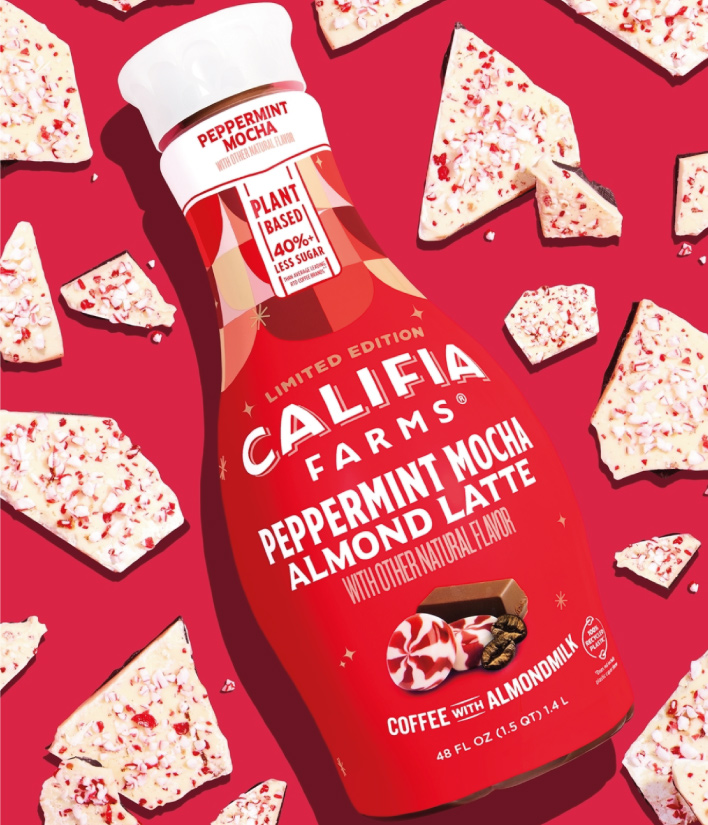

Credits: Califia Farms
A great example of a brand that specializes in the ‘Barista Experience’ is Califia Farms, a California-based company known for its plant-based milks, creamers, and ready-to-drink coffees and teas.Their innovative approach, highlighted by the “Barista Blend” for crafting café-quality drinks at home and the ready-to-drink “Cold Brew Coffee,” creates a unique barista experience. The brand aims to appeal to a broad audience, from dedicated coffee enthusiasts to those simply seeking original and delicious plant-based beverages, with options like Peppermint Mocha milk and Sugar Cookie Almond Creamer.
While at-home coffee consumption is growing strongly, the number of coffee shops continues to rise, confirming the popularity of takeaway coffee.
Coffee shops have become unique places for meeting and socializing, but also workspaces (digital nomads, ring a bell?).
Many people are looking for taste experiences, translating into a demand for quality coffee, exploring different aromatic profiles, and discovering various coffee origins. Coffee shops are attracting a younger target audience, those under 30, who consume less alcohol, frequent traditional cafes and brasseries less often, and are looking for a welcoming environment offering a wide range of beverages (lattes, cappuccinos, matcha, flat whites, etc.).
Many players, especially luxury brands, have recognized this strong demand as a significant opportunity. By creating new retail spaces, brands aim to immerse customers in their unique worlds, enhance their brand image, and attract a wider audience. These spaces are designed to generate buzz on social media, with the intention of making them go viral through user-generated content.
To celebrate the launch of its new fragrance, Nina Ricci has opened an immersive pop-up café inspired by the iconic apple-shaped bottle. A fully staged space in shades of pink where visitors can enjoy pastries in the colors of the perfume and receive complimentary accessories and miniature fragrances. The atmosphere immerses visitors in the world of the perfume, with areas designed to encourage photo opportunities, including a room filled with multiple mirrors creating a play of infinite reflections.
Credits: WBA & Paris Secret
Kate Spade embraced the coffee shop trend with a cheerful cafe at Bloomingdale’s Dubai (April-June 2024). The space featured the brand’s signature green, pink, and red palette, along with iconic stripes and polka dots. Guests enjoyed specially branded treats and drinks, including spade-etched coffee. Kate Spade extended its brand codes through this new retail space.
To celebrate the launch of its new fragrance, Nina Ricci has opened an immersive pop-up café inspired by the iconic apple-shaped bottle. A fully staged space in shades of pink where visitors can enjoy pastries in the colors of the perfume and receive complimentary accessories and miniature fragrances. The atmosphere immerses visitors in the world of the perfume, with areas designed to encourage photo opportunities, including a room filled with multiple mirrors creating a play of infinite reflections.
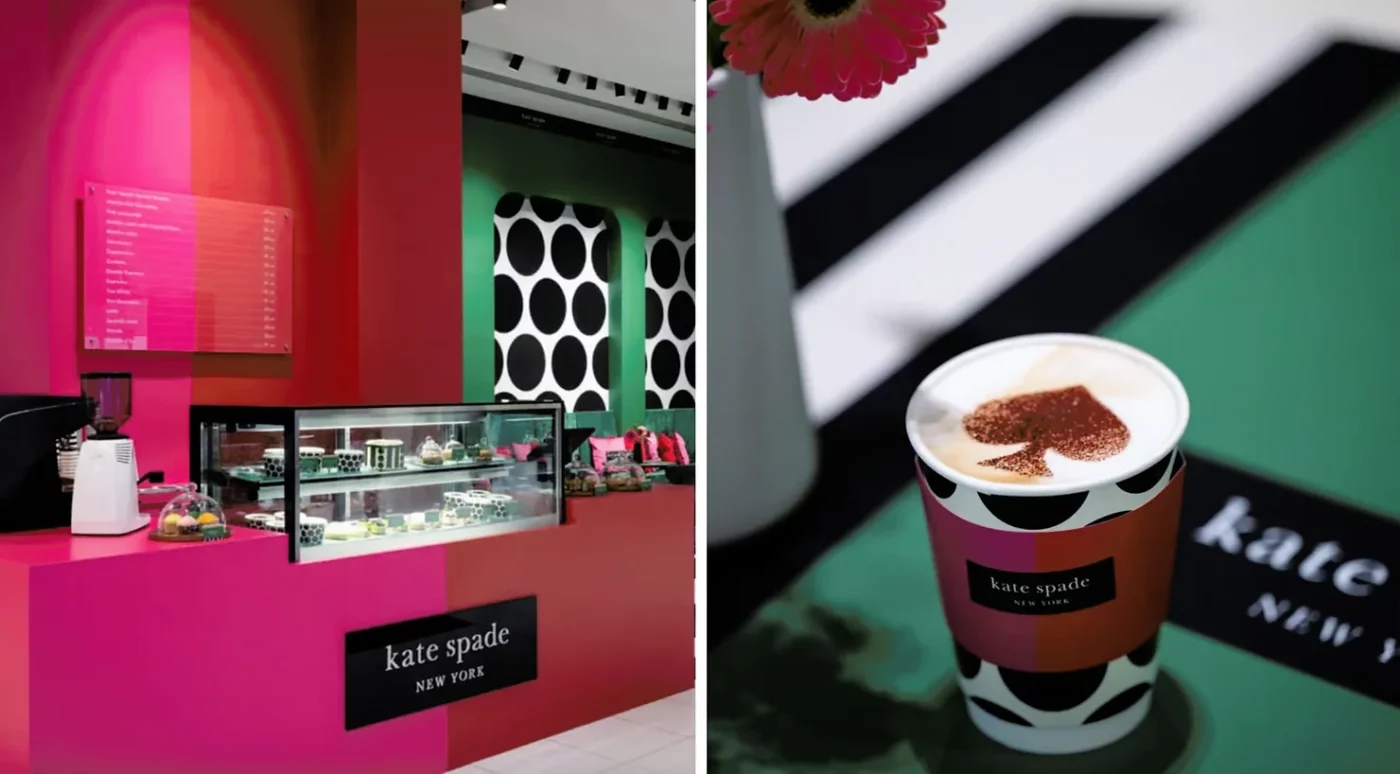
Credit: TheStyleList.in
While some brands are satisfied with temporary pop-ups, others, like Ralph Lauren, choose to create sustainable concepts. Since 2014, Ralph Lauren has opened cafés around the world to expand its broaden its customer base.
These spaces serve as real assets for the brand: in addition to expanding its customer base, they enable experimentation with more accessible concepts. Ralph Lauren has created an exclusive yet affordable collection, sold in its cafés, featuring mugs, plates, key rings, clutches, beanies …
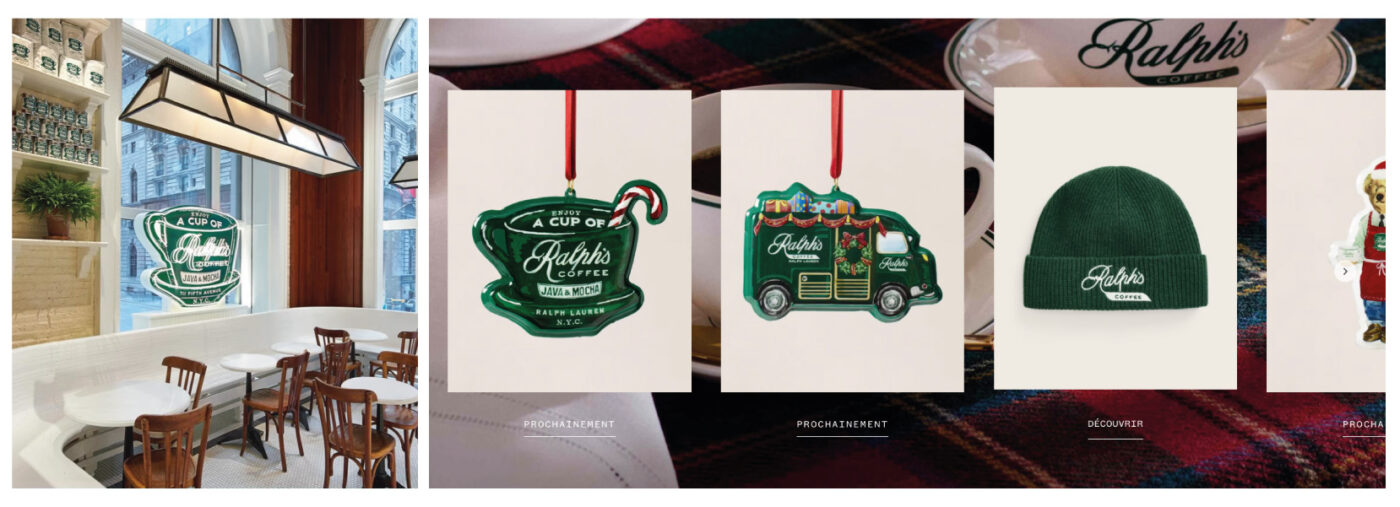
Credit: Ralph Lauren
The coffee market, exciting and full of opportunities, is constantly evolving in line with consumer behavior.
While coffee brands are striving to reconcile affordable prices with consumer values, luxury brands are focusing on innovation with new concepts to extend the customer experience and reinvent themselves.
This question of sustainability is crucial for brands that are considered like icons. How can they remain true to their essence while preserving their iconic status? How can smaller brands can become icons?
Receive news from CBA!
© CBA DESIGN 2021
Privacy Overview
| Cookie | Duration | Description |
|---|---|---|
| aka_debug | This cookie is set by the provider Vimeo.This cookie is essential for the website to play video functionality. The cookie collects statistical information like how many times the video is displayed and what settings are used for playback. | |
| pll_language | 1 year | This cookie is set by Polylang plugin for WordPress powered websites. The cookie stores the language code of the last browsed page. |
| Cookie | Duration | Description |
|---|---|---|
| _gat | 1 minute | This cookies is installed by Google Universal Analytics to throttle the request rate to limit the colllection of data on high traffic sites. |
| YSC | session | This cookies is set by Youtube and is used to track the views of embedded videos. |
| Cookie | Duration | Description |
|---|---|---|
| _ga | 2 years | This cookie is installed by Google Analytics. The cookie is used to calculate visitor, session, campaign data and keep track of site usage for the site's analytics report. The cookies store information anonymously and assign a randomly generated number to identify unique visitors. |
| _gid | 1 day | This cookie is installed by Google Analytics. The cookie is used to store information of how visitors use a website and helps in creating an analytics report of how the website is doing. The data collected including the number visitors, the source where they have come from, and the pages visted in an anonymous form. |
| vuid | 2 years | This domain of this cookie is owned by Vimeo. This cookie is used by vimeo to collect tracking information. It sets a unique ID to embed videos to the website. |
| Cookie | Duration | Description |
|---|---|---|
| IDE | 1 year 24 days | Used by Google DoubleClick and stores information about how the user uses the website and any other advertisement before visiting the website. This is used to present users with ads that are relevant to them according to the user profile. |
| test_cookie | 15 minutes | This cookie is set by doubleclick.net. The purpose of the cookie is to determine if the user's browser supports cookies. |
| VISITOR_INFO1_LIVE | 5 months 27 days | This cookie is set by Youtube. Used to track the information of the embedded YouTube videos on a website. |
| Cookie | Duration | Description |
|---|---|---|
| CONSENT | 16 years 7 months 21 days 10 hours | No description |
| cookielawinfo-checkbox-functional | 1 year | The cookie is set by GDPR cookie consent to record the user consent for the cookies in the category "Functional". |
| cookielawinfo-checkbox-others | 1 year | No description |